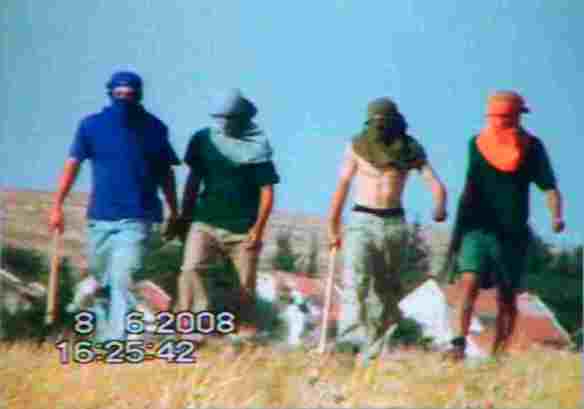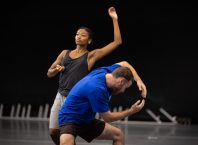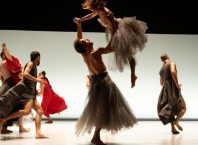
“I am on a mission,” choreographer Arkadi Zaides told me five years ago, when he was working on Quiet, a piece for four dancers exploring the artistic dialogue between Arab and Jewish artists from different fields: Rabie Khoury, an actor, Ofir Yudilevitch who does capoeira, Muhammed Mugrabi, a rapper, and Arkadi himself.
“I need to undergo a process with myself, grow through these works and learn,” he said at the time, and with the passing years it is clear that this sense of mission continues to inspire his art. Difference and dialogue through difference is a strong motif in Zaides’ work, many of his works are developed in collaboration with other artistic disciplines: Solo Colores was a solo created for dancer Iris Erez with a sculpture by Isabel Cruellas; Solo Siento and Meeting Brian Wash included video as an active element; Land Research employed photographs. His work examines questions of relationships, the balance of power, the desire to connect – to land, culture, language, others – and the desire to individuate; the body politic and its influence on the politics of the body. Many of these works involve deep research into the Israeli-Palestinian relationship, and all speak through and of the body and movement.
Archive, Zaides’ latest piece, will make its Israeli premiere at the Diver Festival, September 4 – 5, 2014 at Tmuna Theatre. The work originates in Zaides’ analysis of videos from the archive of B’Tselem, The Israeli Information Center for Human Rights in the Occupied Territories. In 2007, B’Tselem began a Camera Project in which video cameras were given to Palestinians living in areas of conflict to enable them to document human rights violations and show an insider’s perspective on life under occupation.
Zaides focuses on the body as viewed on camera: these are the bodies of Israelis in movement, as they have been filmed by Palestinians. The Palestinians are not seen in the videos, they are behind the camera; it is their presence, their point of view that shapes the perspective. In this work, Zaides states that he wishes to explore not only the specifics of the local reality, but the more universal question: What is the potential for violence embedded in each individual body and what price does the collective pay for controlling the other.
Archive will be performed on September 4th at 19:30 and September 5th at 13:00 at Tmuna Theatre, 8 Soncino Street, as part of the Diver Festival.The Thursday show will be followed by a discussion: The Politicity of the Dancing-Body: Imitation, Dance & the Occupation, with the participation of Renen Amir, Arkadi Zaides and Ido Feder.
Tickets are 85 NIS, to order call:03 – 5611211. The full program of the Diver Festival is available on their website: http://thediverfestival.co.il/en/
Midnight East on Arkadi Zaides: Arkadi Zaides Choreographing Community; Quiet; Land Research
Archive
Archive materials: volunteers for the “Camera Project”of B’Tselem – The Israeli Center for Human Rights in the Occupied Territories: Iman Sufan, Mu’az Sufan, Bilal Tamimi, Udai ‘Aqel, Awani D’ana, Bassam J’abri, Abu ‘Ayesha, Qassem Saleh, Mustafa Elkam, Raed Abu Ermeileh, Abd al-Karim J’abri, Issa ‘Amro, Ahmad Jundiyeh, Nasser Harizat, Abu Sa’ifan, Oren Yakobovich, Nayel Najar
Concept & choreography: Arkadi Zaides
Video consultant: Effi and Amir (Effi Weiss and Amir Borenstein)
Sound art & voice dramaturgy: Tom Tlalim
Artistic advice: Katerina Bakatsaki
Assistant choreography: Ofir Yudilevitch
Light: Thalie Lurault
Technical director: Pierre-Olivier Boulant
Production: Yael Bechor
Special thanks to Myriam Van Imschoot
Produced by: Arkadi Zaides
Co-produced by: Festival D’Avignon (FR), CDC Toulouse (FR), Theatre National De Chaillot (FR), CNDC Angers (FR).
Residencies at: CDC Toulouse (FR), CNDC Angers (FR), STUK Leuven (BE), Theatre National De Chaillot (FR), WP Zimmer (BE)
International distribution: Key Performance
For this project Zaides has received a prize from The Emile Zola Chair for Human Rights (IL).





